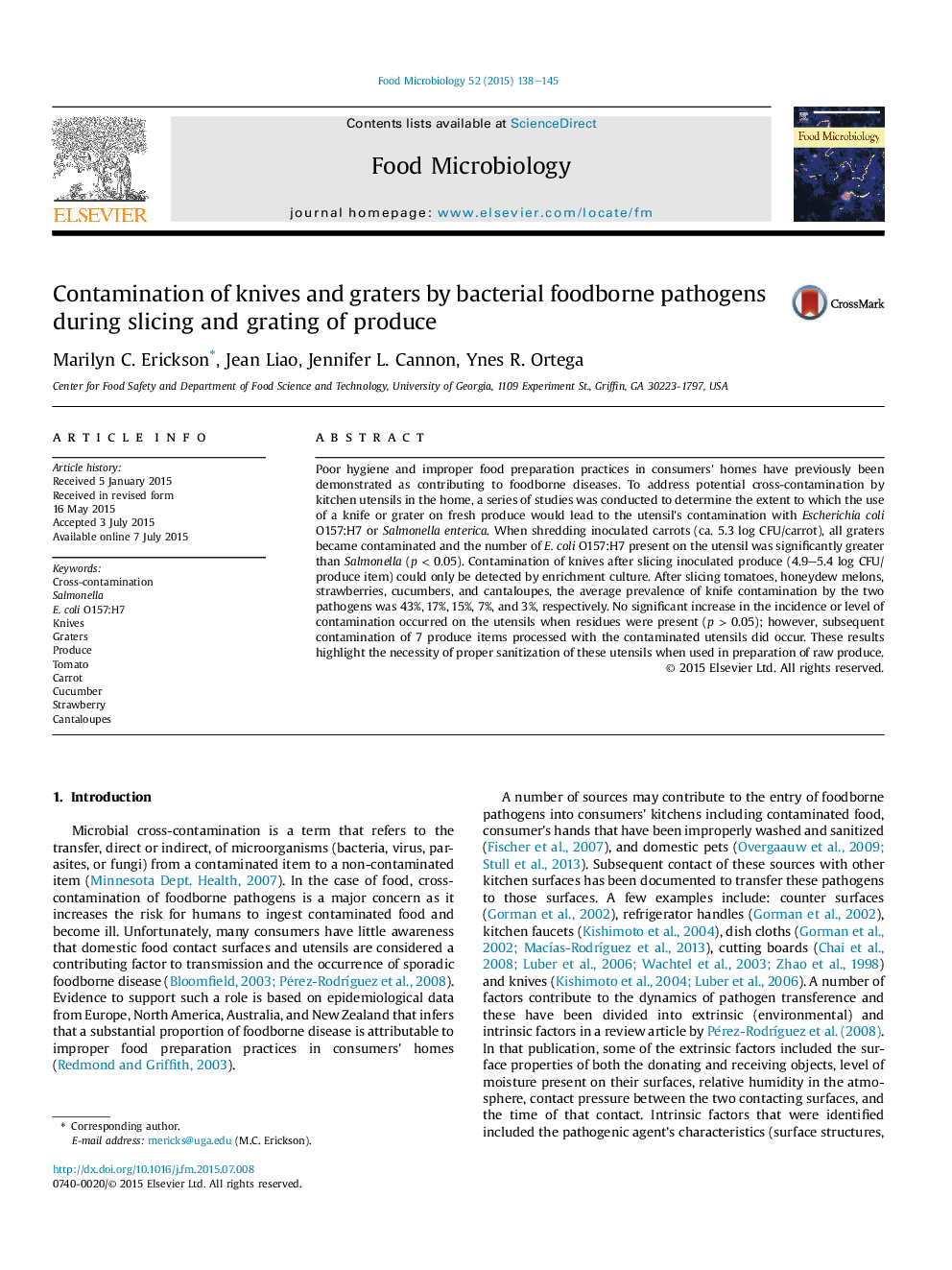| Article ID | Journal | Published Year | Pages | File Type |
|---|---|---|---|---|
| 6288453 | Food Microbiology | 2015 | 8 Pages |
Abstract
Poor hygiene and improper food preparation practices in consumers' homes have previously been demonstrated as contributing to foodborne diseases. To address potential cross-contamination by kitchen utensils in the home, a series of studies was conducted to determine the extent to which the use of a knife or grater on fresh produce would lead to the utensil's contamination with Escherichia coli O157:H7 or Salmonella enterica. When shredding inoculated carrots (ca. 5.3 log CFU/carrot), all graters became contaminated and the number of E. coli O157:H7 present on the utensil was significantly greater than Salmonella (p < 0.05). Contamination of knives after slicing inoculated produce (4.9-5.4 log CFU/produce item) could only be detected by enrichment culture. After slicing tomatoes, honeydew melons, strawberries, cucumbers, and cantaloupes, the average prevalence of knife contamination by the two pathogens was 43%, 17%, 15%, 7%, and 3%, respectively. No significant increase in the incidence or level of contamination occurred on the utensils when residues were present (p > 0.05); however, subsequent contamination of 7 produce items processed with the contaminated utensils did occur. These results highlight the necessity of proper sanitization of these utensils when used in preparation of raw produce.
Keywords
Related Topics
Life Sciences
Agricultural and Biological Sciences
Food Science
Authors
Marilyn C. Erickson, Jean Liao, Jennifer L. Cannon, Ynes R. Ortega,
